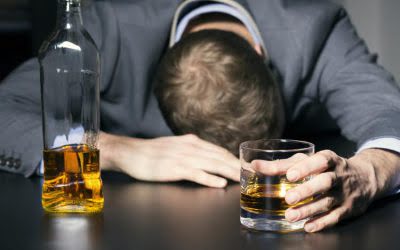Some people are more sensitive to histamine than others – if you’re prone to allergies or have a histamine intolerance, the histamine content of wine might be the cause of these symptoms. No, alcohol-induced sneezing and alcohol flush reaction are two distinct phenomena. Alcohol flush reaction refers to facial flushing and other uncomfortable symptoms experienced by individuals who have difficulty metabolizing alcohol. Yes, certain ingredients in alcoholic beverages, such as sulfites in wine or hops in beer, can be more likely to induce sneezing in susceptible individuals. In conclusion, if you find yourself sneezing when you drink alcohol, know that you are not alone.
Why Does Red Wine Make Me Sneeze?

This condition can also make pre-existing asthma worse, so it’s important to keep an eye on your symptoms. Restricted breathing or worsening asthma can start for some with only one alcoholic beverage. Headaches caused by alcohol intolerance may remind you of headaches felt during a hangover. Clear alcohol like vodka and gin contain less histamine and sulfites, so are less likely to cause a reaction. While this may sound like an allergic reaction, these types of reactions to wine or beer actually have more to do with your immune system.
How Long Does Screw Top Red Wine Last Once Opened?
However, Pepcid and other H2 blockers only mask the symptoms of alcohol intolerance. Although you may be able to drink more alcohol, your body will still struggle to metabolize it. Large amounts of the toxic byproduct acetaldehyde will continue building up in your body. Ultimately, mixing Pepcid and alcohol so that you can drink more only worsens the problem. The nickname “Asian glow” comes from the prevalence of alcohol intolerance among East Asians. Approximately 30 to 50 percent of people in this region have Alcoholics Anonymous an ALDH2 deficiency and are more likely to experience symptoms such as flushing.
Individual Sensitivities to Coffee
A person with severe allergies should carry one with them at all times, in case of a serious allergic reaction. Depending on whether a person has an alcohol allergy or intolerance, they may need to avoid alcohol entirely. A skin prick test should take place in a medical setting in case of a severe allergic reaction.
Why is my body rejecting alcohol?
- If you have any questions or need further assistance, our team at HeyAllergy is here to help.
- While further research is needed to fully understand the genetic factors involved, studies have suggested a possible link between certain genes and alcohol-induced sneezing.
- In addition to avoiding high-histamine and allergy-triggering foods, people should focus on incorporating histamine-lowering and anti-inflammatory foods into their diet.
- If you suspect allergies, it may be beneficial to track your symptoms and consult with a healthcare professional to pinpoint exact triggers.
- With the right balance, a winemaker can create a delicious and complex flavor profile that will surprise and delight even the most discriminating taster.
If you’ve ever wondered – why does my face get red when I drink – this could be why. Younger wines like crisp whites and rosés, and anything with a screw top is far less likely to have mould. If you see mould around the cork of an older bottle, make sure that you clean it off very thoroughly before opening, and take care there is minimal contamination does alcohol make you sneeze from the cork. Each week, you’ll get an amazing recipe, a useful health tip, and an ingredient to jazz up your shopping basket!
Can dehydration from coffee lead to sneezing?
For example, red wine contains a much higher https://washgeek.staging.tempurl.host/sober-living/what-s-the-difference-between-rehab-and-a-halfway/ percentage of histamines when compared to white varieties, so choose wisely if wine sneezes are known to put a damper on your evening. In rare cases, sneezing triggered by alcohol could be a symptom of an underlying medical condition, such as gustatory rhinitis or trigeminal nerve dysfunction. If sneezing persists or is accompanied by other concerning symptoms, consult a healthcare provider. There is no evidence to suggest that specific types of alcohol are more likely to induce sneezing.
When to speak with a doctor
Benadryl is a commonly used medicine for allergies that is available over the counter and with a prescription. Taking alcohol with Benadryl can increase the sedating effect and drowsiness and even lead to the danger of overdosing. An alcohol allergy can occur when a person with an alcohol allergy comes into contact with alcohol, which is also known as ethanol.
Diagnosis and Allergy Tests
In some cases, alcohol consumption can exacerbate seasonal allergies and trigger symptoms like sneezing, nasal congestion, or runny nose in individuals with allergies. Avoiding alcohol during allergy season may help alleviate these symptoms. If sneezing after drinking alcohol is bothersome, you can try limiting your alcohol consumption, choosing different types of alcohol, or taking antihistamines before consuming alcohol. Yes, some people may experience more severe allergic reactions to alcohol, such as hives, itching, swelling, or shortness of breath. This reaction is a result of vasodilation and increased sensitivity of nerve endings in your nasal passages. While alcohol-induced sneezing is generally harmless, taking note of any severe or persistent symptoms is essential.
Its rich aroma and invigorating flavor have made it a staple in many diets. However, for some coffee lovers, sipping on their favorite brew comes with an unexpected side effect—sneezing. Millions of people rely on it for energy and focus, yet for some, the caffeine buzz is immediately followed by an unintended symptom — sneezing. If you have any questions or need further assistance, our team at HeyAllergy is here to help. Don’t hesitate to reach out and take the first step towards a healthier, allergy-free life. It was first mentioned in a letter to the Journal of Medical Genetics in 1989 by two researchers.

Hormones and histamine intolerance – reasons why you are suddenly reacting to wine, tomatoes and chocolate!
- Be sure to tell your doctor about any medications or supplements you are taking.
- It can also cause more serious problems, requiring immediate medical help.
- However, studies have found that a large percentage of red and white wines exceed these recommendations.
- Your descent may also have to do with that because those belonging to Asian countries face more of such problems leading to nasal inflammation on drinking alcohol.
- Keeping track of what you consume and recognizing your unique responses can lead to a happier social drinking experience.
Ultimately, each person’s reaction to alcohol can vary, so understanding your body’s unique response is key. Many people report that red wine causes the most noticeable nasal congestion, even in those without an alcohol allergy or alcohol intolerance. The fermentation and ageing process of making wine directly produces histamines, the chemicals your body makes in response to allergy triggers.
Alcohol usually contains sulfite compounds, and it is important to be aware of your sensitivity. If you have ever felt nauseous or had a headache after drinking wine, there is a chance that you are sensitive to sulfites. It is essential to talk with your doctor if you think you may be sulfite sensitive. It is important to be aware of any symptoms you may experience after consuming alcohol. While it can sometimes be harmless, there are times when the underlying cause could be more serious.
